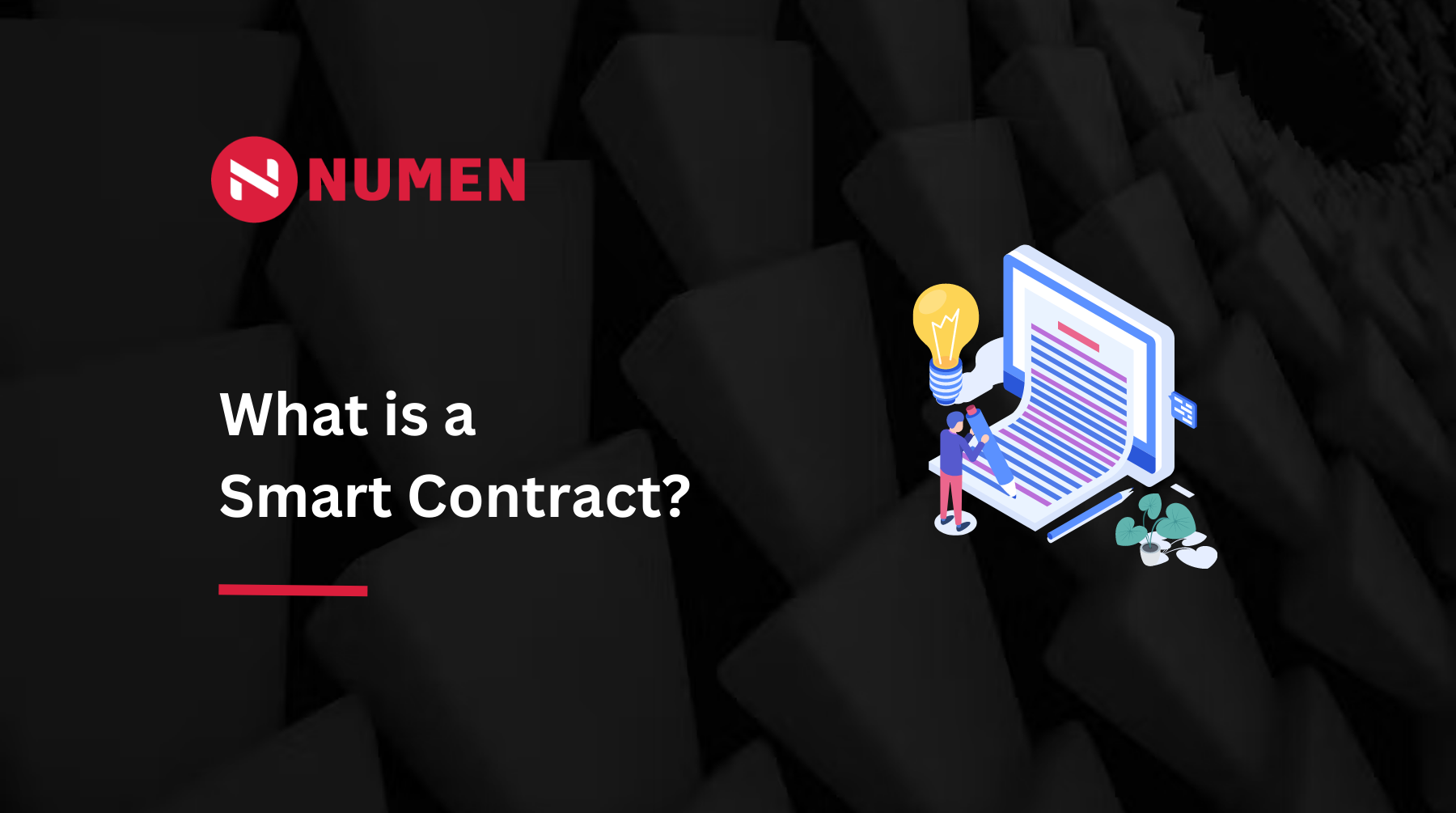
Smart contracts have been hailed as a game-changing innovation in the world of blockchain technology. They are self-executing digital contracts that automatically enforce the terms of an agreement between two or more parties. By eliminating the need for intermediaries and automating the process of contract enforcement, smart contracts have the potential to revolutionize many industries.
In this article, we will provide an in-depth overview of smart contracts, including their definition, features, benefits, limitations, and use cases.
What are Smart Contracts?
Smart contracts are self-executing contracts with the terms of the agreement between buyer and seller being directly written into lines of code. These contracts run on decentralized blockchain networks, and can be used to automate and enforce the negotiation, performance, and settlement of agreements.
At their core, smart contracts are simply computer programs that run on blockchain networks like Ethereum. They are designed to facilitate, verify, and enforce the negotiation and execution of agreements between parties without the need for intermediaries like lawyers, banks, or other third-party institutions.
One of the defining features of smart contracts is their ability to self-execute based on pre-defined conditions being met. This means that once a smart contract is deployed, it can automatically carry out its intended function without any human intervention.
For example, a smart contract could be created to facilitate a simple transaction, such as the purchase of a good or service, with the terms of the transaction being encoded directly into the contract’s code. When certain conditions, such as the transfer of payment or the delivery of the goods, are met, the contract will automatically execute and transfer ownership of the goods or service to the buyer.
Smart contracts are also immutable, meaning that once they are deployed to a blockchain network, they cannot be altered or deleted. This adds an extra layer of security and trust to the agreement, as all parties involved can be assured that the terms of the contract cannot be changed without their consent.
Benefits of Smart Contracts
Smart contracts offer a variety of benefits compared to traditional contracts, which is why they have gained popularity in recent years. In this section, we will explore some of the key advantages of smart contracts.
Efficiency and Automation
Smart contracts are self-executing and automatically enforce the rules and conditions set forth in the contract. This eliminates the need for intermediaries, such as lawyers and banks, reducing transaction costs and increasing efficiency. Since smart contracts are automated, they also reduce the potential for human error.
Transparency and Trust
Smart contracts are publicly visible on the blockchain, providing transparency and enhancing trust. All parties involved can see the terms of the contract and its execution, ensuring that everyone is held accountable.
Security
Smart contracts use cryptographic protocols to protect against tampering, fraud, and hacking. This makes them more secure than traditional contracts, which can be easily forged or altered.
Irreversibility
Once a smart contract is deployed and executed on the blockchain, its terms and conditions cannot be altered or deleted. This provides a high level of security and ensures that all parties involved must comply with the contract’s terms.
Decentralization
Smart contracts are deployed on a decentralized blockchain, meaning that they are not controlled by any central authority or organization. This provides a level of decentralization and autonomy that is not possible with traditional contracts.
Cost Savings
Smart contracts eliminate the need for intermediaries, such as lawyers and banks, reducing transaction costs and increasing efficiency. This can lead to significant cost savings for businesses and individuals.
How to Create and Deploy a Smart Contract
Creating and deploying a smart contract requires a basic understanding of blockchain technology and programming languages. The following are the essential steps to creating and deploying a smart contract:
- Choose a blockchain platform: Smart contracts are typically deployed on blockchain platforms, with Ethereum being the most popular. Other blockchain platforms that support smart contracts include EOS, NEO, and Hyperledger Fabric.
- Choose a programming language: Once you have chosen a blockchain platform, you need to choose a programming language to write your smart contract. Ethereum supports Solidity and Vyper, while EOS supports C++ and Rust.
- Write your smart contract: Once you have chosen a blockchain platform and programming language, you can start writing your smart contract. Smart contracts are typically written in a high-level programming language and are compiled into bytecode that can be executed on the blockchain.
- Test your smart contract: Before deploying your smart contract, it is essential to test it thoroughly to ensure that it works as intended. You can use tools like Remix, Truffle, and Ganache to test your smart contract.
- Deploy your smart contract: Once you have tested your smart contract, you can deploy it to the blockchain. Deploying a smart contract requires you to pay a fee, known as gas, which is used to compensate the network nodes that execute your contract.
- Interact with your smart contract: Once your smart contract is deployed, you can interact with it using a wallet or other tools. You can send transactions to the smart contract, which will execute its code and update its state on the blockchain.
Limitations and Challenges of Smart Contracts
While smart contracts offer many benefits, they are not without limitations and challenges. It is important to be aware of these before investing time and resources in developing and using smart contracts.
Lack of Flexibility
Smart contracts are programmable and enforceable, which can be both an advantage and a disadvantage. While they can automate complex processes and reduce the need for intermediaries, their rigidity can also limit their adaptability to changing circumstances. Smart contracts are only able to execute what they are programmed to do, and cannot respond to situations that are not specifically addressed in their code.
This lack of flexibility can be a significant challenge in certain applications. However, the current scalable contracts solves this problem to a certain extent.
Security Vulnerabilities
As with any computer program, smart contracts are susceptible to bugs and vulnerabilities that can be exploited by malicious actors. While the immutability of smart contracts can enhance security, it also means that any errors or vulnerabilities in the code cannot be easily corrected once the contract is deployed. This can lead to significant financial losses or other negative consequences. The best way to mitigate such issues are comprehensive smart contract audits.
To mitigate the risk of financial loss due to vulnerabilities in your smart contracts, contact us for expert assistance.
Integration Challenges
Smart contracts are not always compatible with existing systems or technologies, which can make their adoption and integration into business processes challenging. Smart contracts require specialized skills and knowledge to develop, and may require changes to existing infrastructure or processes to be effective.
Dependence on Oracles
Smart contracts are unable to access external data sources or respond to real-world events on their own, and rely on oracles to provide this information. Oracles can be a weak link in the smart contract ecosystem, as they may be subject to manipulation or may not provide accurate information.
Regulatory and Legal Challenges
As smart contracts continue to gain popularity and be used in more complex applications, regulatory and legal challenges are likely to emerge. The lack of clarity around the legal status of smart contracts, as well as issues related to jurisdiction and enforceability, are significant challenges that need to be addressed.
The Future of Smart Contracts
As blockchain technology continues to evolve and become more widely adopted, the future of smart contracts looks promising. Here are some potential developments to look out for:
Integration with IoT and AI
As the Internet of Things (IoT) becomes more pervasive, smart contracts could be used to automate and enforce agreements between connected devices. Similarly, the integration of smart contracts with artificial intelligence (AI) could lead to new applications, such as autonomous organizations or self-executing contracts based on predictive analytics.
Greater Adoption in Traditional Industries
As smart contracts become more user-friendly and the benefits become clearer, it’s likely that more traditional industries will begin to adopt them. For example, the supply chain management industry could benefit from the automation and transparency that smart contracts provide.
Improved Security and Privacy
One of the challenges of smart contracts is ensuring the security and privacy of the data they handle. Future developments could include improvements in cryptography and privacy-enhancing technologies to address these concerns.
Interoperability between Blockchains
Currently, smart contracts are tied to specific blockchains, which can limit their flexibility and usefulness. In the future, interoperability between blockchains could enable smart contracts to be executed across multiple networks, opening up new possibilities for decentralized applications.
Final Thoughts
Smart contracts represent a revolutionary technology that has the potential to transform the way we conduct transactions and agreements. By eliminating the need for intermediaries, automating processes, and enhancing security, smart contracts offer numerous benefits that can lead to greater efficiency and cost savings.
It is nevertheless important to keep in mind the limitations and challenges associated with smart contracts, such as their inability to access real-world data and the need for careful planning and programming to avoid potential vulnerabilities.
Despite these challenges, the future of smart contracts looks promising. With ongoing development and innovation, we can expect to see more widespread adoption of smart contract technology in a variety of industries and applications.
Let Our Security Experts Help
At Numen Cyber, we are dedicated to providing cutting-edge Web3 Security Solutions that cater to the cybersecurity needs of various Web3 application scenarios. Our team of leading security experts is equipped to provide comprehensive security services throughout the lifecycle of a Web3 project, including Smart Contract security audits, Blockchain security, Wallet security, and Exchange security.
If you want to make sure that your projects are secure and protected from smart contract vulnerabilities and exploits, our team would be happy to learn more about your project and your specific needs, and ensure that your project is as secure as possible.
Stay up to date with the latest news and insights on Blockchain and Web3 security by following us on Twitter @numencyber.


